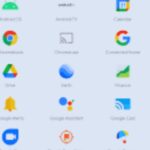In the digital age, access to information has become more convenient than ever. One of the most powerful tools for researchers and learners is Google Books, a platform that allows users to search the full text of millions of books and magazines. Whether you’re a student, a professional, or simply a curious individual, Google Books can significantly enhance your research and learning experience. Here, we explore some of the best ways to utilize Google Books effectively.
1. Extensive Search Functionality
Google Books offers a robust search feature that enables users to find specific topics, phrases, or keywords within texts. This capability is particularly beneficial for researchers who need to locate information quickly. By entering a keyword or phrase, users can uncover relevant passages, references, and contexts that might not be easily found in traditional libraries or databases.
Tips for Effective Searching:
- Use quotation marks to search for exact phrases.
- Combine keywords with Boolean operators like AND, OR, and NOT for more targeted results.
- Explore the advanced search options for more precise filtering.
2. Access to a Vast Library
With millions of books available, Google Books provides access to an extensive collection that spans various genres, topics, and languages. From academic texts and historical documents to fiction and poetry, the platform offers a wealth of resources that cater to diverse interests and needs.
Exploring the Collection:
- Utilize categories and genres to browse books that pique your interest.
- Keep an eye on featured collections or new releases in your field of study.
- Make use of user-generated lists and recommendations to discover hidden gems.
3. Preview and Full-Text Access
One of the unique features of Google Books is the ability to preview many texts, allowing users to read snippets or full pages before deciding to purchase or borrow the book. This feature is especially helpful for students and researchers who want to gauge the relevance of a book to their work without committing to a purchase.
Making the Most of Previews:
- Take advantage of the preview feature to assess the quality of the content.
- Look for full-text books available for free, especially classics or out-of-print editions.
- Use previews to identify citations or references you might want to follow up on later.
4. Organizing Your Research
Google Books offers a range of tools to help users organize their research. By creating a Google Account, you can save books to your personal library, highlight passages, and add notes. This functionality makes it easier to track important information and revisit key texts during the writing process.
Tips for Organization:
- Create a dedicated bookshelf for your research projects to keep your materials organized.
- Use the note-taking feature to summarize key points or jot down questions.
- Regularly review your saved books and notes to reinforce your learning.
5. Citations and References
For academic writing and research projects, proper citations are crucial. Google Books simplifies this process by providing citation information in various formats, including MLA, APA, and Chicago styles. This feature helps ensure that you credit your sources accurately, saving you time and effort.
How to Use Citation Tools:
- Look for the “Cite” button when viewing a book to generate citations easily.
- Always double-check the formatting and accuracy of the generated citations.
- Familiarize yourself with the citation style required for your specific project or institution.
6. Collaboration and Sharing
In today’s interconnected world, collaboration is key. Google Books allows users to share their findings with peers and colleagues. You can share links to specific pages or books, making it easier to discuss resources or collaborate on research projects.
Enhancing Collaboration:
- Use social media or academic platforms to share insights or discoveries from Google Books.
- Collaborate with study groups by sharing books and notes digitally.
- Consider starting a blog or forum where you discuss insights gained from your reading.
7. Integrating Google Books with Other Tools
To maximize your research and learning experience, consider integrating Google Books with other digital tools. For example, using citation management software like Zotero or EndNote can streamline your workflow, while note-taking apps can help you compile your insights in one place.
Integration Tips:
- Sync Google Books with your Google Drive for easy access to your notes and highlights.
- Use research management tools to categorize and reference your findings from Google Books.
- Explore educational tools like Google Scholar for broader academic research.
Conclusion
Google Books is a powerful resource that can significantly enhance your research and learning endeavors. By leveraging its extensive collection, advanced search capabilities, and organizational tools, users can access a wealth of knowledge right at their fingertips. Whether you’re preparing for exams, conducting research for a paper, or simply looking to expand your knowledge, mastering the use of Google Books can unlock a world of information and insights. Embrace the power of this platform and elevate your learning journey today.
Spread Knowledge








